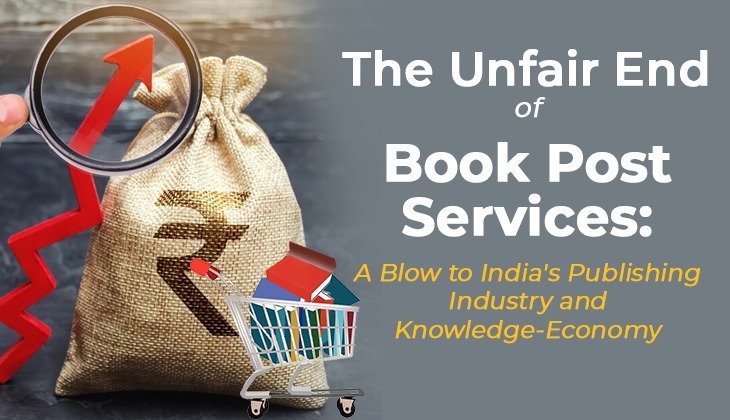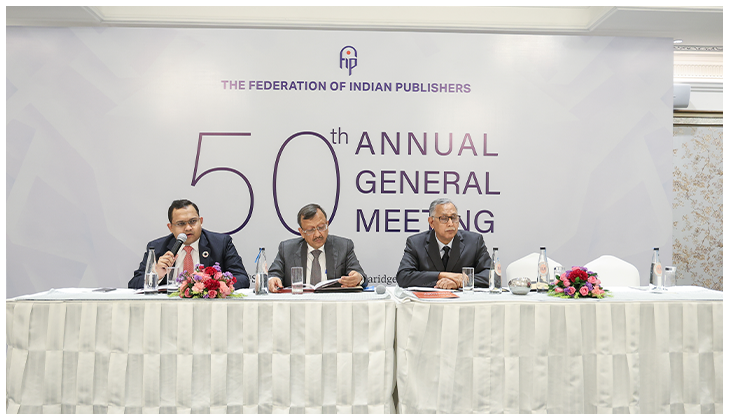India’s publishing industry, a cornerstone of the nation’s intellectual and cultural identity, is facing an unexpected challenge with the abrupt discontinuation of the Registered Book Post service by India Post. This move, taken without consultation with stakeholders, has sent shockwaves through the publishing community, threatening both the business viability of publishers and the accessibility of books to the masses. As someone deeply engaged in the Indian publishing industry and public policy, I, Pranav Gupta, find this decision unwarranted, unprofessional, and fundamentally unfair.
The Importance of Affordable Shipping for Books
Books have always been more than commodities; they are tools of knowledge, imagination, and societal growth. The average price of a book in India is around Rs 250. If shipping costs exceed 10-15% of the book’s price, as they inevitably will without the subsidised Book Post service, customers will be deterred from buying new books. This undermines efforts to build a robust book-reading culture in India, a goal reiterated by Prime Minister Narendra Modi himself.
In his message to the Federation of Indian Publishers (FIP) on releasing the compilation ‘75 Years of Book Publishing in India,’ PM Modi emphasised that “Nations and societies in the 21st century will be knowledge-oriented and knowledge-driven. India, a land that considers education as divine, has great potential to lead the world in this century.” The discontinuation of Book Post services contradicts this vision, creating knowledge dissemination and literacy barriers.
Publishing: A Business and a Social Institution
A publishing house operates on a dual foundation. On one hand, it is a business that must sustain itself financially. On the other, it is a social institution that reflects and influences the life of the entire community. This dual role makes publishing imperative to be supported by policies that enable it to thrive, especially in a country like India, where literacy and education are critical to achieving the vision of a “Viksit Bharat” by 2047.
India Post’s abrupt decision to abolish the Book Post service disregards the unique nature of the publishing industry. Higher shipping costs will inevitably lead to increased book prices, discouraging readers and driving some to pirated or used books. This significantly impacts the creative industry, demotivating authors, editors, and publishers who rely on legitimate sales to sustain their work.
Abuse of Dominance by India Post
As a state-run monopoly, India Post dominates the postal and logistics sector. Its unilateral decision to discontinue the Book Post service abuses this dominance, potentially attracting provisions under Section 4(a), (b), and (c) of the Competition Act, 2002. By eliminating an affordable shipping option, India Post has stifled competition and harmed the interests of publishers and readers alike.
The Way Forward
The publishing industry is not asking for undue privilege but policies recognising its unique role in nation-building. The government needs to:
Reinstate the Book Post Service: Consult with stakeholders to understand the implications of its discontinuation and develop a sustainable model that balances cost and accessibility.
Encourage Knowledge Dissemination: Policies that make books more accessible to all sections of society can align with the Prime Minister’s vision of a knowledge-driven society.
Combat Piracy: Ensure that legitimate channels for book distribution remain viable to prevent a shift towards pirated and second-hand markets.
Foster Public-Private Dialogue: Establish a collaborative platform where stakeholders from the publishing, logistics, and policy sectors can work together to address challenges and explore innovative solutions.
Conclusion
As PM Modi envisions, the Amrit Kaal is a time to build a strong, self-reliant India. Knowledge lies at the heart of this mission, and the publishing industry plays a pivotal role in achieving it. By discontinuing the Book Post service, we risk not only the economic viability of publishers but also the cultural and intellectual growth of our society.
I urge policymakers to reconsider this decision, considering the broader implications for India’s knowledge economy and the dreams of countless readers and writers. Let us ensure that the written word continues enlightening, educating, and empowering our nation unimpeded by logistical hurdles.
Together, let’s build a reading India, a knowledgeable India, and a thriving publishing ecosystem that stands as a beacon for the world.


